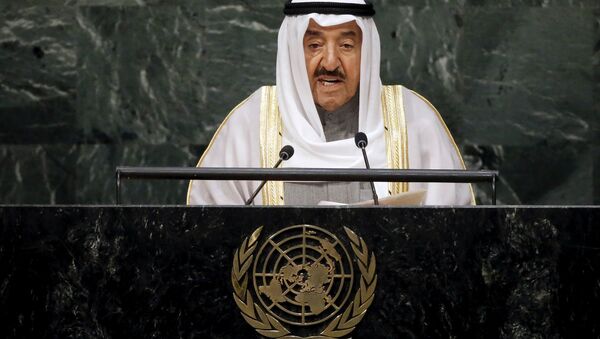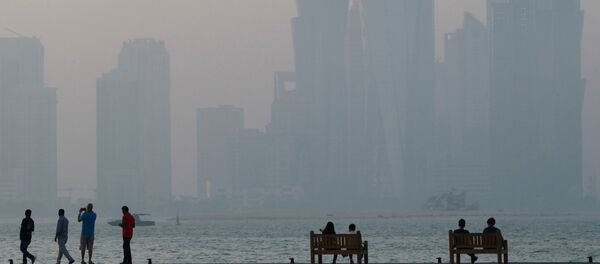Sheikh Sabah al-Ahmad al-Jaber al-Sabah, who has ruled the tiny Gulf nation of Kuwait since 2006, spoke during the opening ceremony of the 38th summit of the Gulf Cooperation Council (GCC), a trade bloc made up of Bahrain, Kuwait, Oman, Qatar, Saudi Arabia and the United Arab Emirates.
"We are all aware of the conditions around us… and of their deterioration that represent a serious challenge to us all," Sabah said. "The situation is compounded with the obstacles on our GCC forward-looking progress, and this demands that we cooperate, consult and meet at all levels. We cannot confront these challenges individually."
"What we have in common is we will never be affected by a dispute," he said. "We see it as temporary, however long it takes."
The 38th GCC summit was notable for being the first time that Qatar joined the other Gulf states to discuss regional cooperation since relations drastically deteriorated between Qatar and the rest of the GCC in June 2017.
In June 2017, the Saudis, along with Bahrain, the UAE and Egypt, cut diplomatic ties with Doha and instituted an economic blockade on charges that Qatar has acted as a state sponsor of terrorism. Doha has denied the charge.
Qatar has held firm and refused to comply with Saudi conditions for lifting the blockade, such as the closing of Al-Jazeera and the cessation of diplomatic relations with Riyadh's eternal rival, Iran. Kuwait has remained neutral in the crisis, calling for dialogue and negotiation to end the dispute and acting as a mediator — but to little avail.
However, Sabah has not been dissuaded, despite the stalemate. The 23rd Arabian Football Gulf Cup was moved from Qatar to Kuwait after Bahrain, Saudi Arabia and the UAE threatened to pull out of the tournament if it was held in Qatar.
During a speech to conclude the tourney, Sabah said he was happy to have had the opportunity to host an event that brought GCC countries closer together. He added that GCC leaders were responsible for cooperating to further the development of the region.
"Your role as representatives of the citizens of the GCC states is vital, constructive and complementary to the role of the official bodies in our countries," he told the leaders of his fellow Arab monarchies. "Our people look forward with great hope to such meetings to fulfill their aspirations for stability, prosperity and development. What brings us together is far too important to be impacted negatively by a difference no matter how long it lasts."




